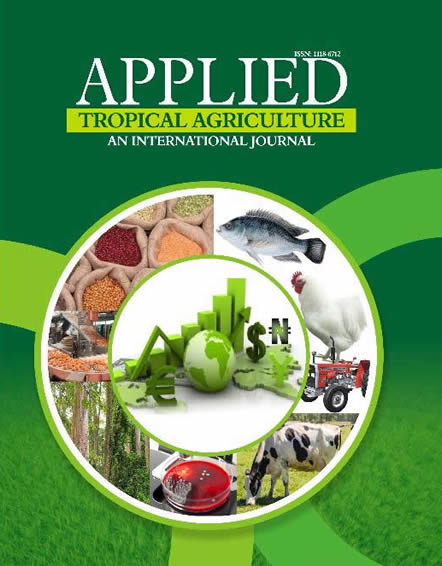This study assessed the impact of non-farm enterprises on households' income and inequality of rural entrepreneurs. The fact that efforts made by the Nigerian government to achieve the Millennium Development Goal (MDG) of reducing inequality by 2015 was not achieved, necessitates the need to join the rest of the world in pursuing the Sustainable Development Goal (SDG) of reducing inequality and achieve gender equality by 2030. Hence, the need to examine the potentials of non-farm enterprises in meeting the SDG of reducing income inequality within the country by 2030.The data for this study were obtained from General Household Survey fielded by National Bureau of Statistics in 2015/2016, containing 5,000 households; however, only 2,281 matched observations were used for analyses using Propensity Score Matching and Gini Coefficient. The result shows that the average treatment on the treated nationwide was N34, 567.10 per month, while mean income (N63,461.88) of female participants was higher than that of their male counterparts (N30,705.64). In all the six geopolitical zones, the impact of non-farm enterprises was significantly felt on household income with South-east having the highest impact of 284.42% while Entrepreneurs in North-east had the lowest impact of 94.07%. However, non-farm enterprises would have contributed 71.52% to household income of non-participants if they had participated in which South-east would have experienced the highest impact of 185.57%. The impact of non-farm enterprises reduced inequality by 19.29% nationwide with higher reduction among the males (23.91%). Also, in all the zones, income inequality reduced with South-west having the highest reduction (18.39%). Therefore, there is need for governments to encourage more females to participate in non-farm enterprises by organising more empowerment programmes. Keywords:Non-farmenterprises, Income inequality, Impact assessment, Rural Entrepreneurs, Nigeria
PAPER TITLE :IMPACT OF NON-FARM ENTERPRISES ON INCOME AND INEQUALITY STATUS OF RURAL HOUSEHOLDS IN NIGERIA
APPLIED TROPICAL AGRICULTURE | VOLUME 25 NUMBER 1 2020
Paper Details
- Author(s) : Kolawole Roseline. J.
- Abstract:


